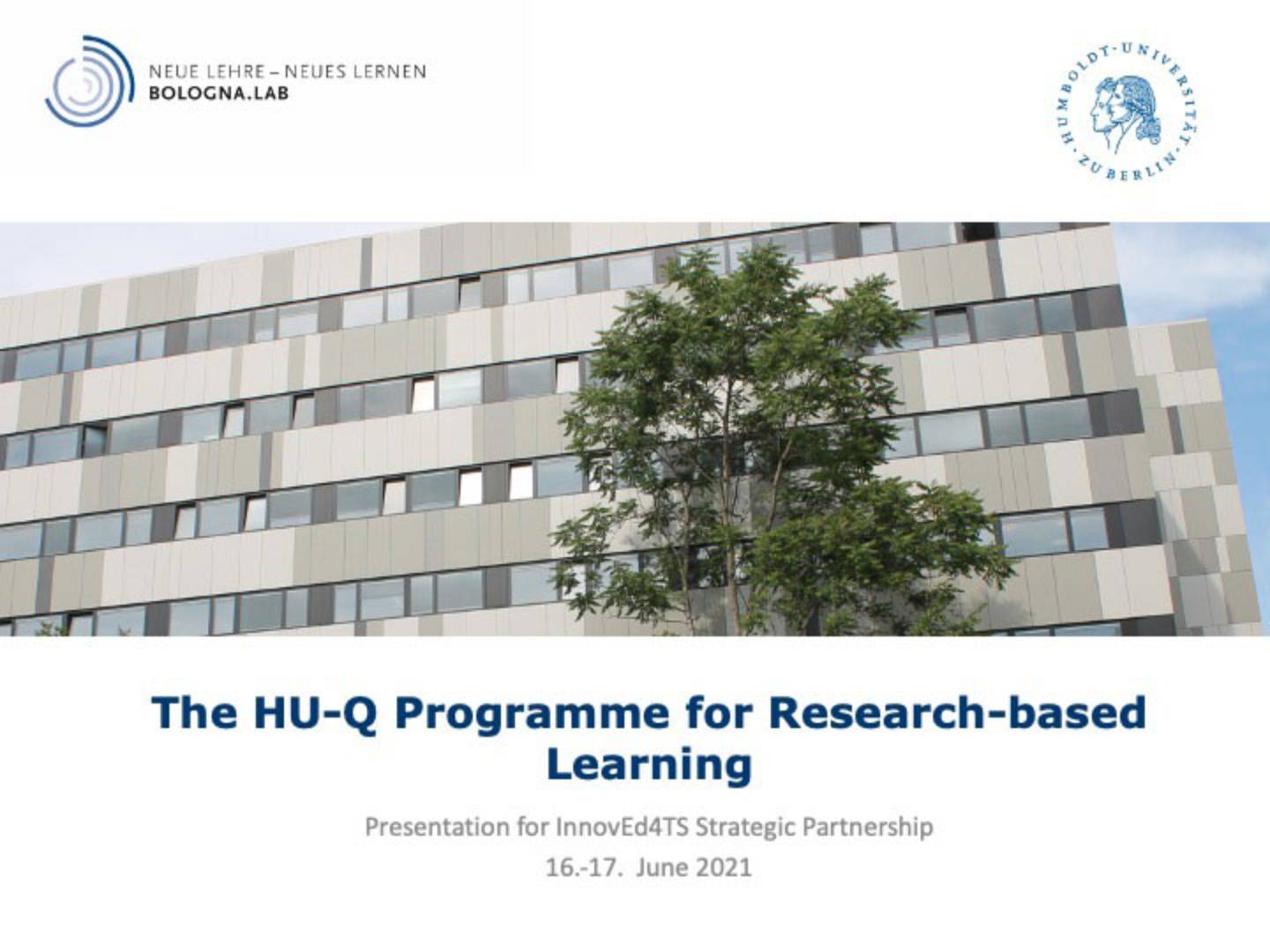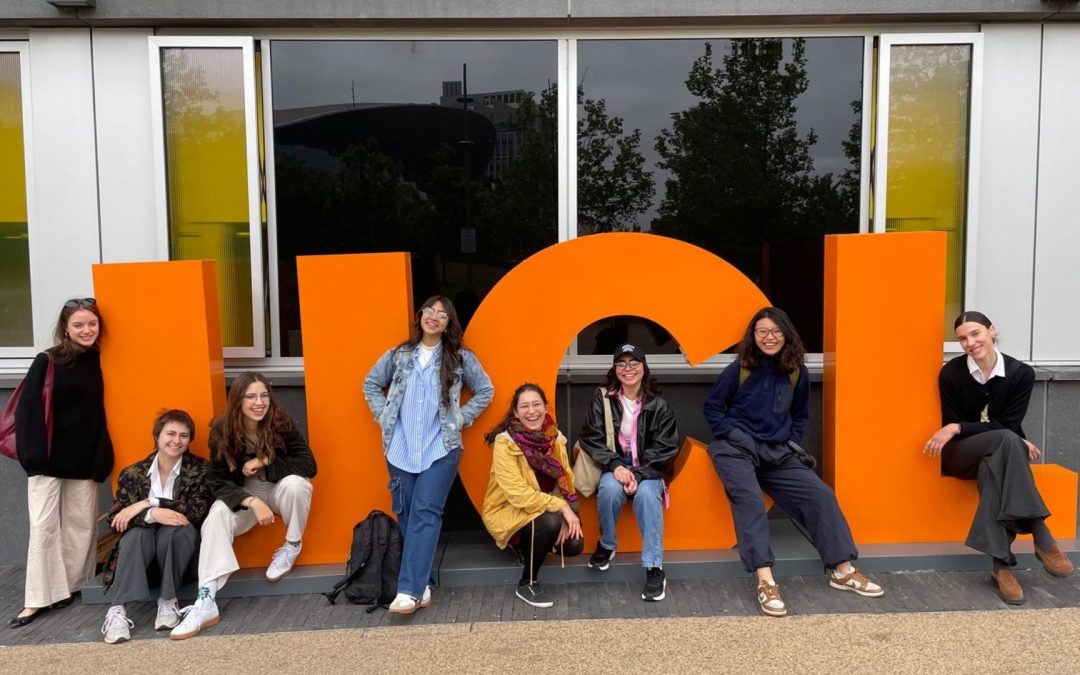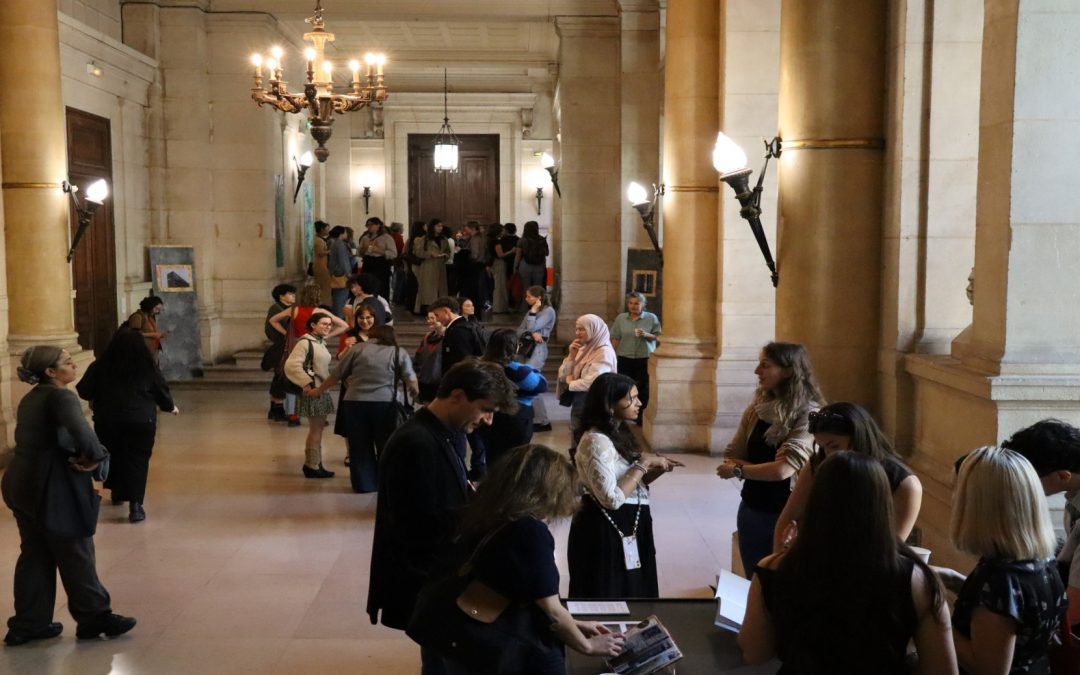Last June, the seventh flagship initiative of the Strategic Partnership InnovEd4TS was hosted virtually at Humboldt Universität zu Berlin (HU-Berlin). Invited experts from four Circle U. universities and the University of Lisbon met around the flagship initiative HU-Q Programme, a university-wide initiative for research-based learning. Since the programme started in 2012, Humboldt Universität’s laboratory for innovation in teaching and learning, the bologna.lab, has facilitated 419 Q-Projects for 3,560 student participants from all disciplines.

Strategic Partnership InnovEd4TS (Innovative Education for Transferable Skills), is five member universities of Circle U. Alliance: Humboldt University, UCLouvain, University of Oslo, University of Aarhus and Université Paris Cité along with the University of Lisbon
Photo credit Humboldt-Universität zu Berlin
The HU-Q Programme led by the bologna.lab aims at:
- strengthening the research-teaching nexus at HU-Berlin, in particular at the undergraduate level.
- fostering the “shift from teaching to learning” by introducing learning formats that are focused on the construction of knowledge, the active acquisition and development of competencies, rather than traditional “knowledge transmission”.
- enhancing the quality of teaching by providing training in research-based education to students, researchers and teaching staff leading the student research projects.
HU-Q Programme is a competitive research opportunities programme which proposes 3 formats targeted at students, junior researchers and researchers.
What is Research-Based Learning or RBL?
During the visit, the Leads of the HU-Q programme, Wolfgang Deicke and Laura Schilow, provided the experts with solid references and definitions for Research-Based Learning or RBL.
“Most, if not all subjects taught at the university have a connection to research and part of university education is to prepare students for research in their discipline”, starts Wolfgang Deicke.
“But most of university research training is based on knowledge transmission or the guided development of applied skills”. “Independent research” starts when students are presented with a research problem to solve individually (or in groups) or given the opportunity to develop a research project by themselves. “It is these types of activities that we would class a research-based learning. It is distinct from the other types of research-related teaching in that it requires the students to be more active and engaged in knowledge production. They may not always produce “original” research, but they gain insights and skills that are new to them personally”, explains Laura Schilow.
Visit the Circle U. website to learn more about the programme and read the article in full.
Read more

EURIP Master’s Students at University College London Hackathon

From Paris to Singapore: a visual retrospective of the exhibition
On the 16th of May, Université Paris Cité hosted the exhibition evening for the programme Singapore: a Nexus of Nature, Culture, and the Arts. Centred around creativity, intercultural exchange, and environmental reflection, the event showcased the work of around...
![[Circle U.] Internationalise your study plan without leaving home!](https://u-paris.fr/wp-content/uploads/2025/04/OPEN-CAMPUS-CIRCLE-U-1080x675.jpg)
[Circle U.] Internationalise your study plan without leaving home!
In an increasingly fast-paced and demanding world, developing new skills and gaining international experience are essential for strengthening your applications and easing your entry into the job market. The European alliance Circle U., of which our university is a...
![[Call for Applications – Circle U.] Entrepreneurial Change-making programme](https://u-paris.fr/wp-content/uploads/2025/06/change-making-2024.jpg)
[Call for Applications – Circle U.] Entrepreneurial Change-making programme
Keen to lead a meaningful project? Want to collaborate with other young people from across Europe to help shift practices? The Entrepreneurship for Change programme by the Circle U. European university alliance – of which we are a member – is back this November with a...
